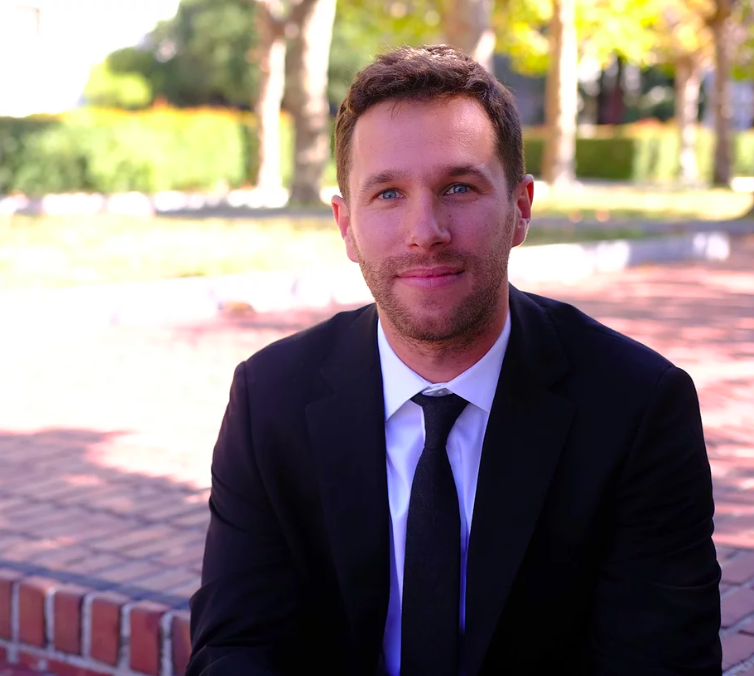
YASH RAJWANSHI – NOVEMBER 12TH, 2019
Q (Yash Rajwanshi): First of all, thank you Mathieu for your time. Do you want to first introduce yourself and just talk about your background in Economics and why you started studying Economics here at UC Berkeley?
A (Mathieu Pedemonte): Hi Yash! My name is Mathieu Pedemonte, and I am a fifth year PhD student in the Economics department. Before coming here I did a Masters and B.A. in Economics at the University of Chile.
Q: What drew you to Economics specifically?
A: I was first drawn to Economics because I liked Math, History, and Trade, and I thought Economics was a good match for that. As I worked more with it, I started liking research. Basically, the first time I had a question that was related to Economics and I saw how people had conducted research to answer that question, I was interested. I really liked this and it lead me to a PhD.
Q: What diverted you to research, specifically? Why pursue a PhD?
A: The Masters that I did was very research-oriented. To study in America from South America, you usually have to get a Masters, and the Masters that I did was very oriented to those who want to go to graduate school or PhD after. Because of that, the process was relatively easy, because my B.A. gave me an idea of my liking for research; then for the dissertation of my Masters, I worked with professors and I liked that. I slowly worked towards it and so far I am enjoying it, so it was a good decision.
Q: Can you talk a little bit about your current papers that you’re working on?
A: For the last year I’ve been working on my job market paper—the main paper you have to develop to get a job after PhD. My field is micro or empirical macro, and what I do is work with various professors. I looked into how communication can be used as a policy tool. So we know from basic economic models that expectation of what people feel will happen to the economy or “consumer sentiment” decides investment decisions, consumption decisions, and stuff like that. We started working on this idea and we realized there’s not a lot of work that looks at how communication strategies of politicians making a big announcement of a policy that’s going to affect the economy affects consumer behavior today. Therefore, I started answering this question and looked at some events I could use to answer this question, which lead me to a radio announcement President Roosevelt made. So I moved into Economic History, trying to understand what happened in the Great Depression and used that setting to answer this bigger question I have about how announcements affect consumers and financial decisions.
Q: Referring to your previously published writings online, what are some trends you have seen that caused changes in consumer behavior?
A: President Roosevelt used the radio for different reasons. First, he faced opposition from the media and newspapers of the time, so he wanted to communicate his ideas directly. He also used it to validate and announce the policies that he was making. In this case, the main speech that I looked at is of him announcing the Social Security Act, and other programs that were part of the second wave of the New Deal. The idea was to provide protection and stability to households. It makes sense that having that stability from the state pushes you to start investing or begin making long-term economic decisions. This was important in that time because the economy was recovering, so we didn’t have that much uncertainty about the state of our economy. So I feel like this policy is interesting because it gives you some certainty of the future. Also, announcing large government expenditures have different effects today. Conventional policies for traditional banks, such as Goldman [Sachs], include their main way of stabilizing the economy, which is usually by controlling their policy rate. Today, the policy rate is relatively low and many governments have a high debt to GDP ratio, so if there’s a crisis or recession tomorrow, we won’t have traditional methods to stabilize the economy. This leads to more research about other policies we can use to recover our economy. One idea is to have a future tax on goods, called the conventional fiscal policy. You announce that you’re gonna increase taxes in the future, so people spend more today, providing a small boost in the economy that helps it recover from a recession. The speech I looked at talked about social security and taxes, which is why I study that specific event to consider how our learnings can be applied today based on how it worked for the government back then.
Q: Some of your other research includes automation in global markets. Can you talk about that, why it interested you, and the methodology?
A: My other focus was international trade, and my advisor and I started thinking about the idea of automation and how it can affect trade. The problem with automation is that many of the papers that look at automation think of it as something that is exogenous. They believe there is some sector in the economy that automates because of an exogenous reason, and for that reason they are affected more by automation. We believe this might actually have more of an endogenous reason. For example, if you are a manufacturer in the US and want to outsource a part of your manufacturing process, the original way was to outsource to an underdeveloped country. But today, you can create machines to increase efficiency. That way, trade has roles in automation trends. We tried to make a model and test some implications of the model with data, trying to incorporate the trade mechanism that can drive automation. We are still working on this research, even though it has paused for a bit.
Q: You mentioned you’re wrapping up your PhD and then want to work. Do you want to go into research or into industry?
A: In my case, I want to find something more related to research. I like the research process and I have some research ideas and working papers that I want to develop. For that reason, I want to give a shot to my current projects to see if they are good enough to get published and create a career off of. The research market is unstable and even professors will tell you that you don’t know where you will end up for research. Right now I am looking at universities and those type of jobs, but also there are some central banks and international organizations that have research roles, so I am also applying to those jobs. However, my main idea in the next few years is continuing my research.
Q: After all your years studying Economics, what advice do you have for a student getting into Economics right now at UC Berkeley?
A: I always say that Economics is fun, because I didn’t have Economics in high school and we still had big questions about inequality and the function of the government or political decisions. Economics gives you a lot of tools to answer and have an opinion about these things, and for me, I started understanding what was going on and I really enjoyed that. My first advice is enjoy Economics, don’t think about problem sets or specific lectures, but think about the implications of them and how you can develop an opinion around what you’re learning. Also, at Berkeley, you have access to really good professors that are talking about new things that are super relevant. You have professors that are talking about minimum wage, monetary policy, and all the other key current events in Economics. Look at professors that are interesting and take their classes and ask questions. Being a curious student, even if you don’t want to do research, is useful here at UC Berkeley because of the amazing faculty group. Even if you don’t want to do research, you should use your toolset to make a change in your community. Unfortunately, sometimes economists are valued too highly in policy decisions. However, if you understand Economics because of your education, you can use this power to impact your community. For example, AOC [Alexandria Ocasio-Cortez], who studied Economics, is bringing up basic economic concepts and that leads to people taking her more seriously. Making the link between what you’re learning and the world around you is important given how relevant Economics is to all the decisions in the world.
Q: Awesome, thank you so much for your time Mathieu.
Featured Image Source: Photo by Hagit Caspi
Disclaimer: The views published in this journal are those of the individual authors or speakers and do not necessarily reflect the position or policy of Berkeley Economic Review staff, the Undergraduate Economics Association, the UC Berkeley Economics Department and faculty, or the University of California, Berkeley in general.


